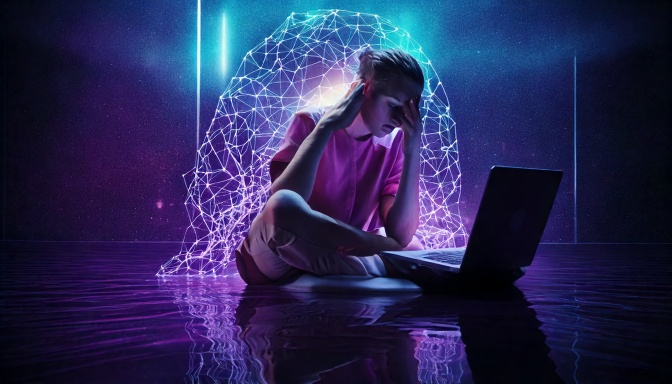The rise of AI chatbots like ChatGPT is reshaping how we interact online. While these chatbots offer convenience and support, new research suggests they might also contribute to feelings of loneliness and depression — especially when used for personal conversations. As the popularity of these tools grows, understanding their impact on mental health becomes crucial.
What’s Happening & Why This Matters
New studies from OpenAI and MIT reveal a concerning link between ChatGPT usage and higher levels of loneliness. The research shows that personal conversations with chatbots — those that involve emotional exchanges — are particularly correlated with increased feelings of isolation. This trend is especially prevalent among users who are more prone to emotional attachment and those who view the chatbot as a friend who could fill a void in their personal life.
One study conducted by MIT over a four-week period with 1,000 participants found that users who engaged in frequent emotional conversations with ChatGPT were likelier to report a sense of loneliness. Interestingly, these effects were more pronounced in users with a stronger inclination to form emotional bonds in relationships.
Extended daily use of these emotionally charged interactions seems to lead to worse outcomes, although the research notes that this pattern is not observed in most ChatGPT users. According to the study, emotional conversations make up a niche group of interactions, meaning most users do not engage with the chatbot in a way that contributes to loneliness.

This issue is part of a growing body of research exploring AI’s negative and positive impacts on mental health. As chatbots become more integrated into our lives, understanding their effects on mental health is increasingly important. Earlier in 2024, a Florida mother filed a lawsuit against Character.AI, claiming that the chatbot contributed to her son’s suicide.
In some countries, regulatory measures have already been implemented. For instance, in 2022, the Italian government ordered the company behind the Replika chatbot to halt its operations in Italy, citing concerns about the risks these virtual companions posed to vulnerable people.
However, it’s not all negative. Some studies have pointed to the potential benefits of using chatbots for mental health therapy. Though the idea of AI therapists is still controversial, some research suggests that these chatbots could help manage conditions like depression, at least in the short term.
TF Summary: What’s Next
As AI chatbots integrate more into daily life, it’s necessary to balance their potential benefits with the risks they pose to mental health. The findings from OpenAI and MIT show that while chatbots can provide helpful support, they may also exacerbate feelings of loneliness and depression in certain users. The challenge will be to design AI systems that can effectively support mental health without contributing to these adverse effects.
— Text-to-Speech (TTS) provided by gspeech


